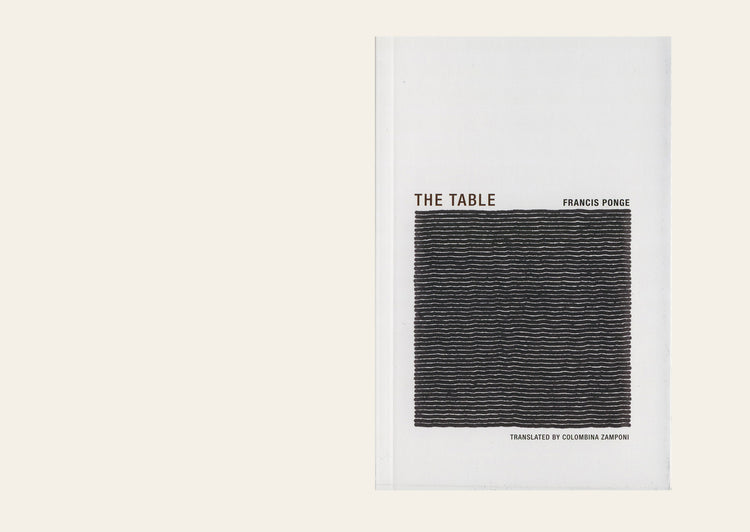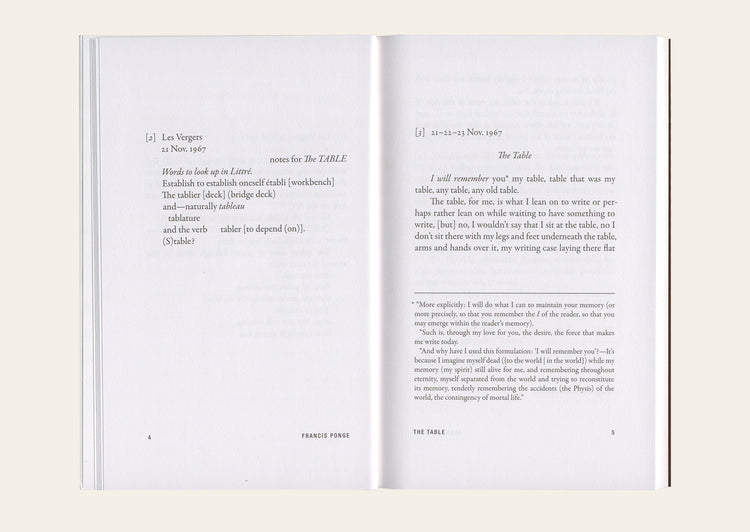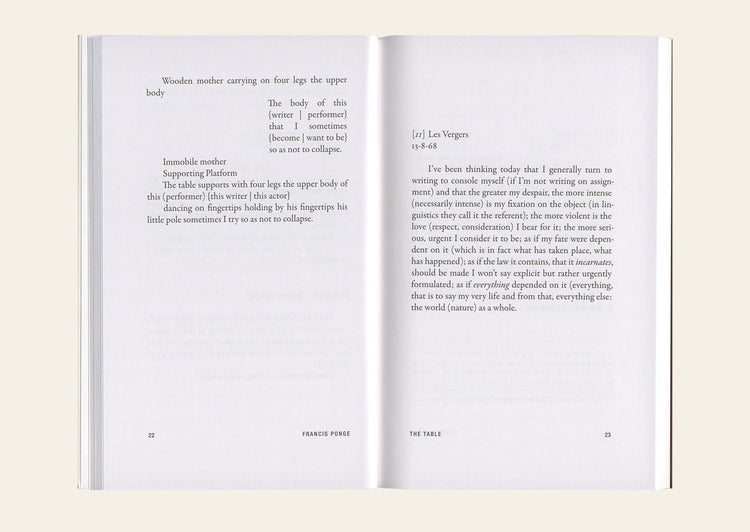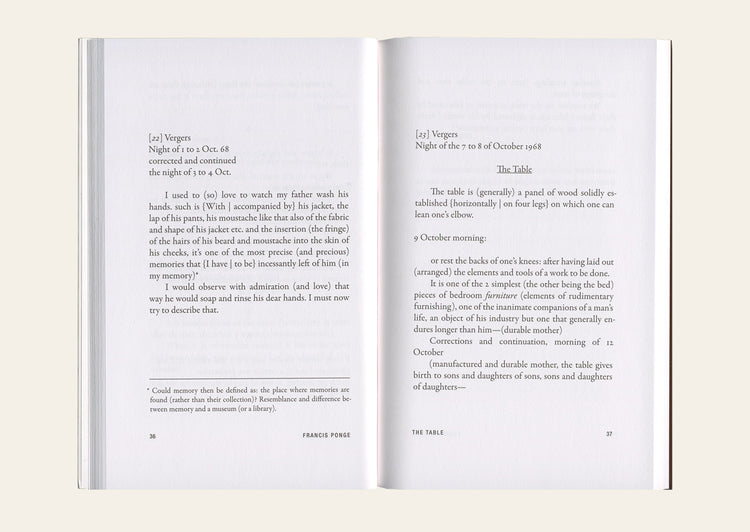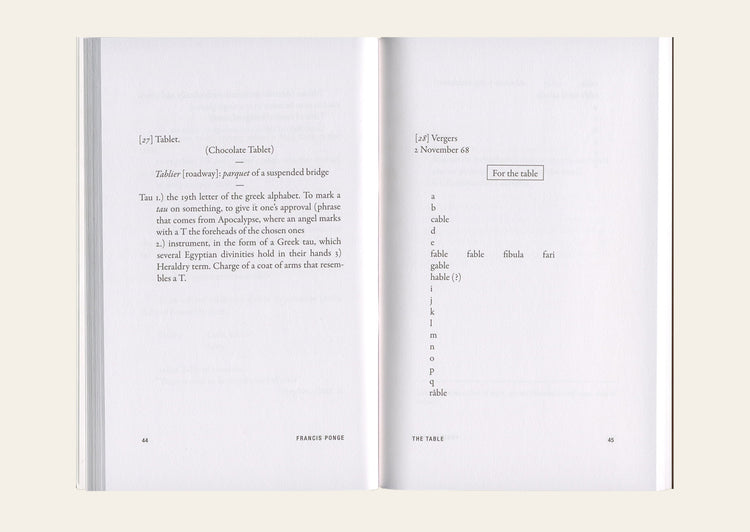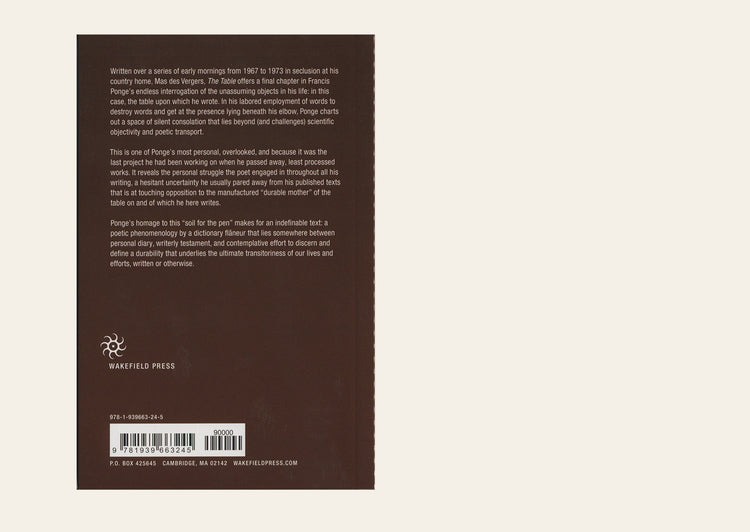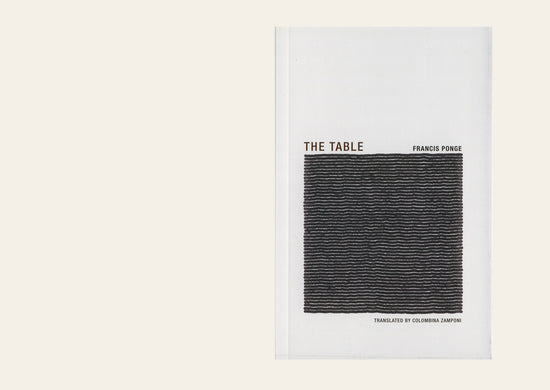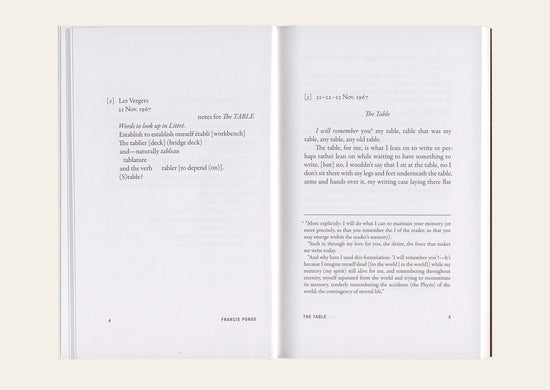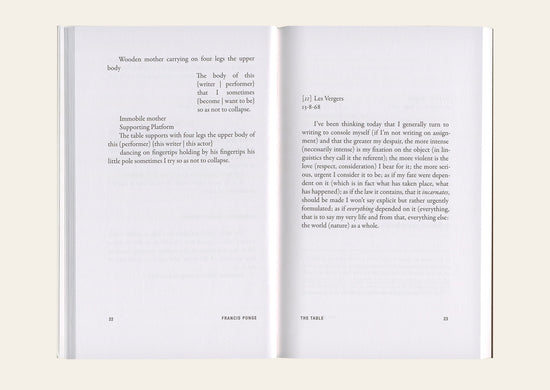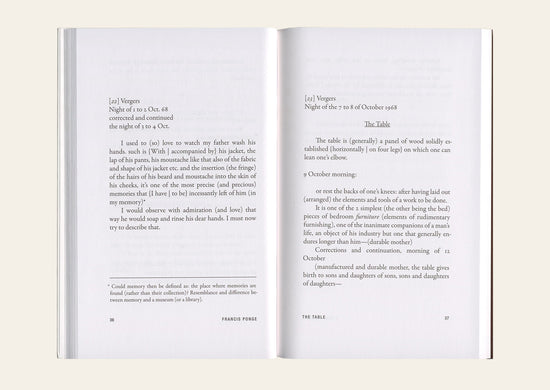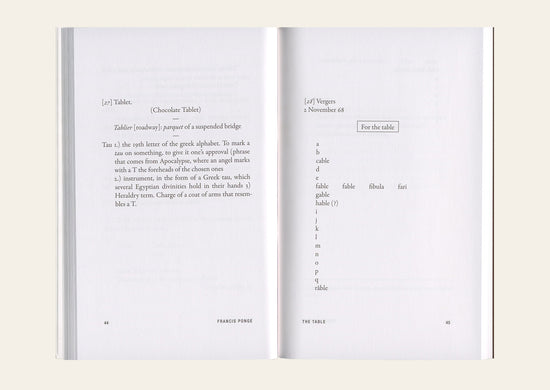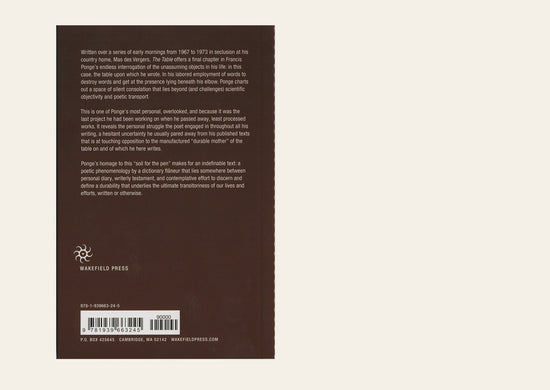Fiction
The Table - Francis Ponge
Written over a series of early mornings from 1967 to 1973 in his seclusion at his country home, Mas des Vergers, "The Table" offers a final chapter in Francis Ponge’s endless interrogation of the unassuming objects in his life: in this case, the table upon which he wrote. In his laboured employment of words to destroy words and get at the presence lying beneath his elbow, Ponge charts out a space of silent consolation that lies beyond (and challenges) scientific objectivity and poetic transport.
This is one of Ponge’s most personal, overlooked, and because it was the last project he had been working on when he passed away, his least processed works. It reveals the personal struggle Ponge engaged in throughout all of his writing, a hesitant uncertainty he usually pared away from his published texts that is at touching opposition to the manufactured, “durable mother” of the table on and of which he here writes.
Ponge’s homage to this “soil for the pen” makes for an indefinable text: a poetic phenomenology by a dictionary flaneur that lies somewhere between personal diary, writerly testament, and contemplative effort to discern and define a durability that underlies the ultimate transitoriness of our lives and our efforts, written or otherwise.
Francis Ponge (1899–1988) was both a giant of French twentieth-century poetry, and one of its humblest practitioners. The poet of “things,” he practiced a poetic contemplation—usually in the form of his own unique brand of hesitant, searching prose poem—of the everyday objects that inhabit our lives and share our existence. He did not so much reinvent the shell, cigarette, soap, pebble, sun, oyster, or the asparagus, as forge and share with them a new language.
Translated, with an introduction, by Colombina Zamponi
Wakefield Press, 2017
English
Softcover, 136 pages
120mm x 180mm
- Regular price
- AUD 28.00
- Regular price
-
- Sale price
- AUD 28.00
- Unit price
- per
Couldn't load pickup availability
Item added to your cart
